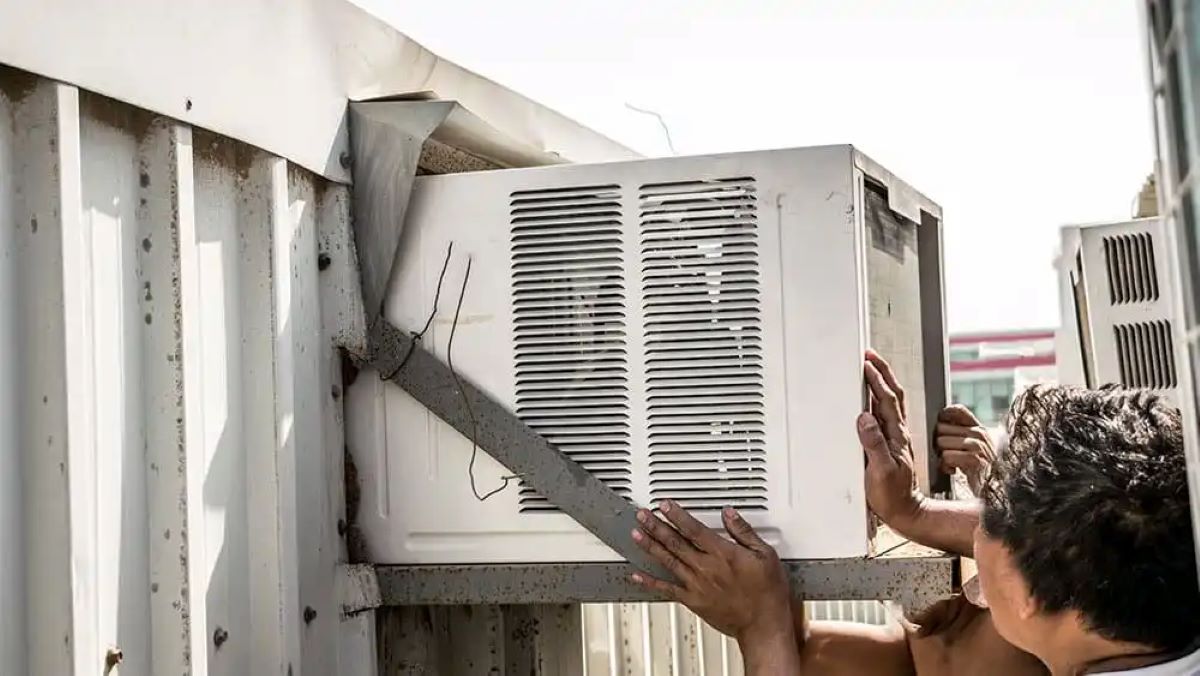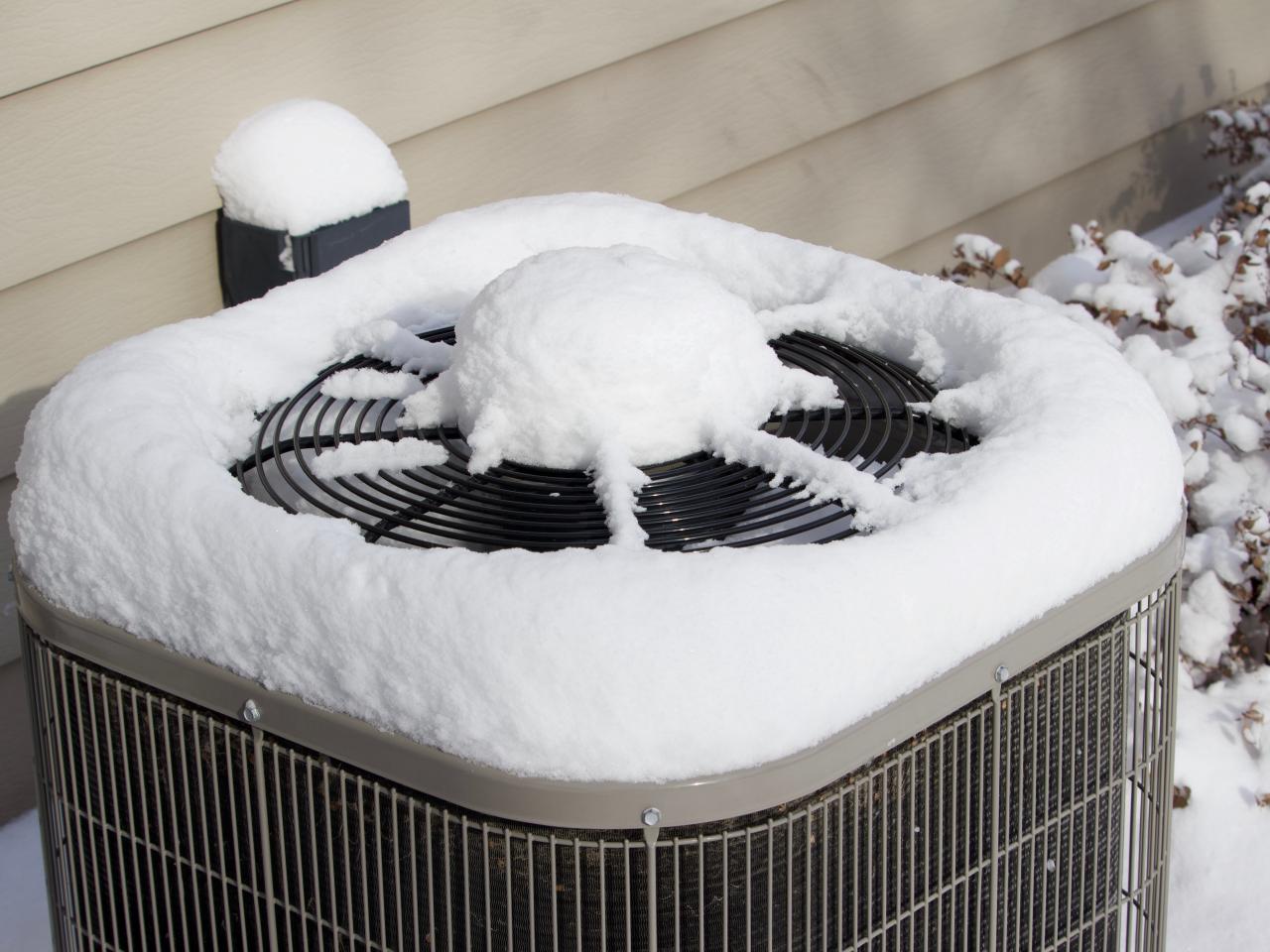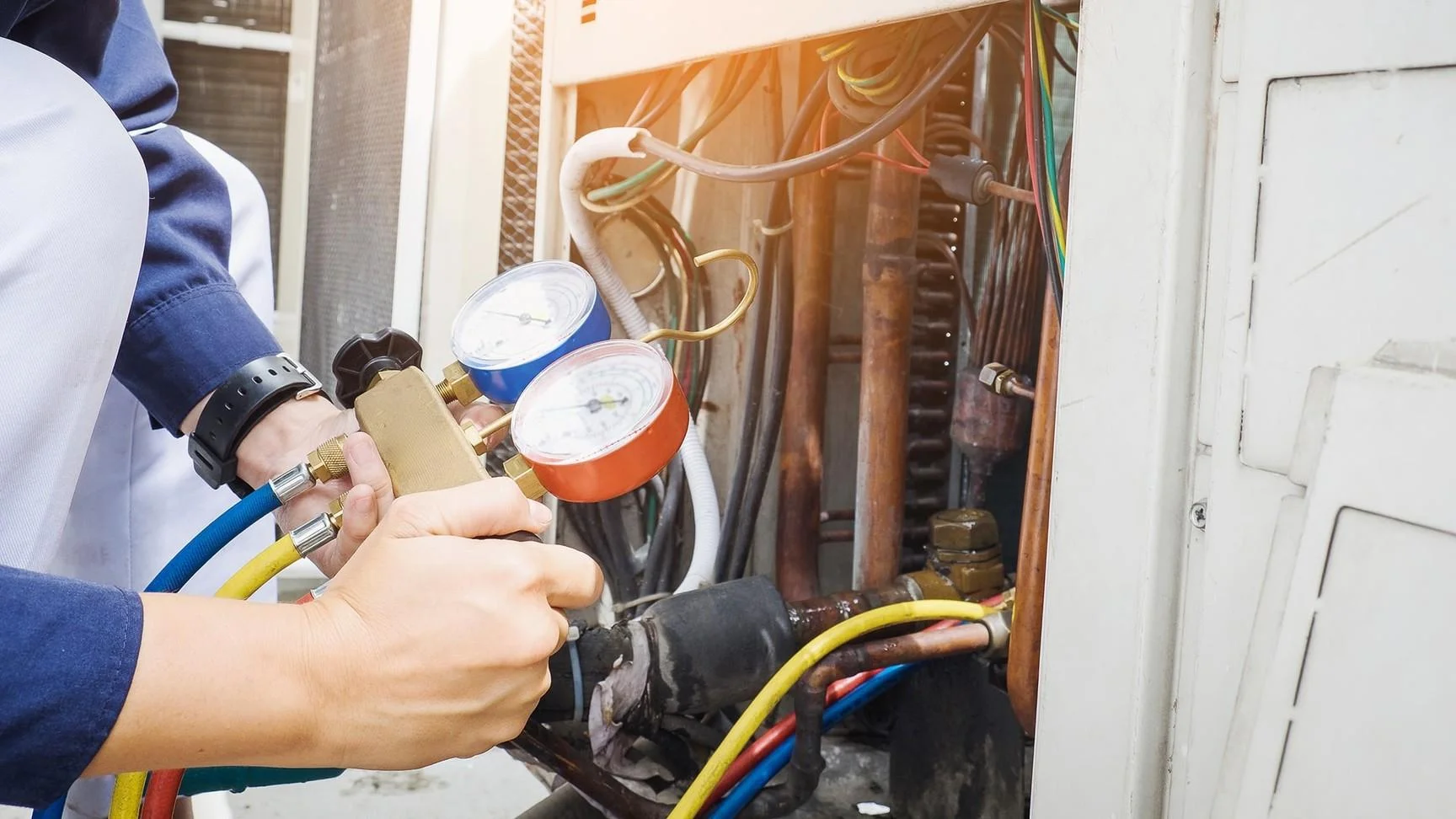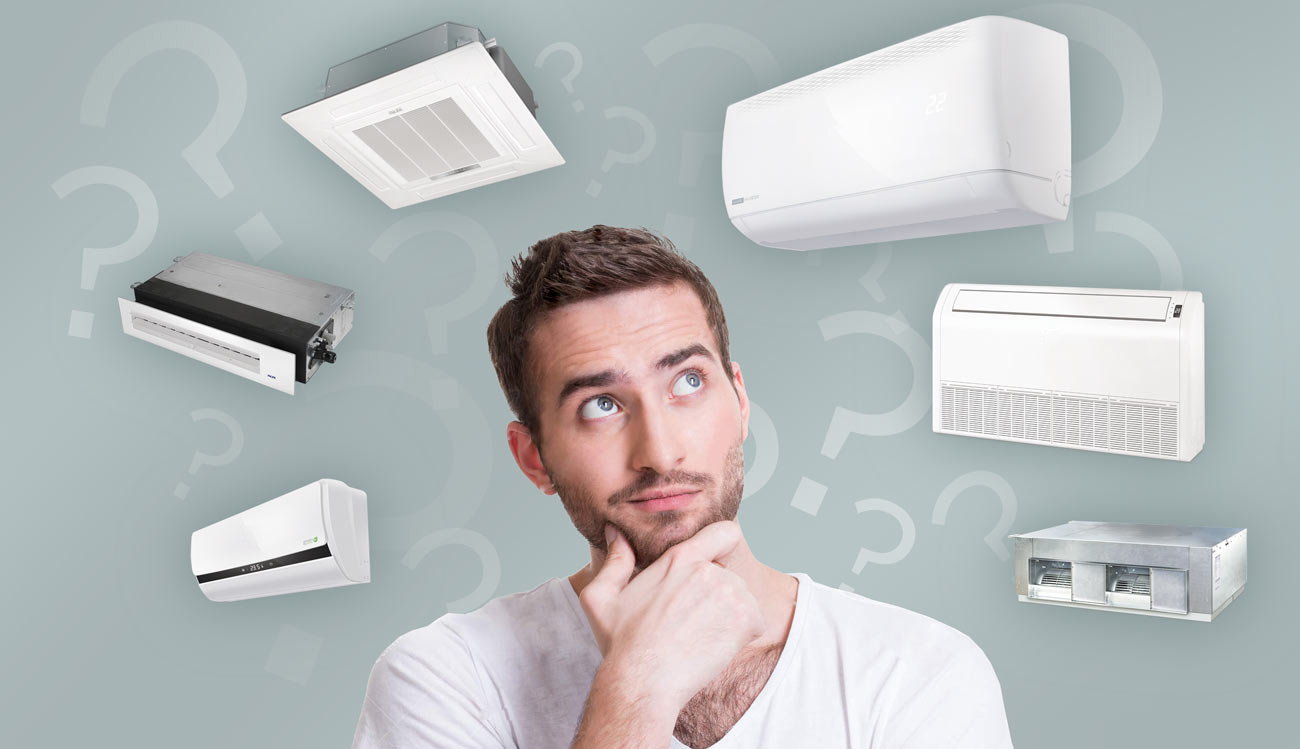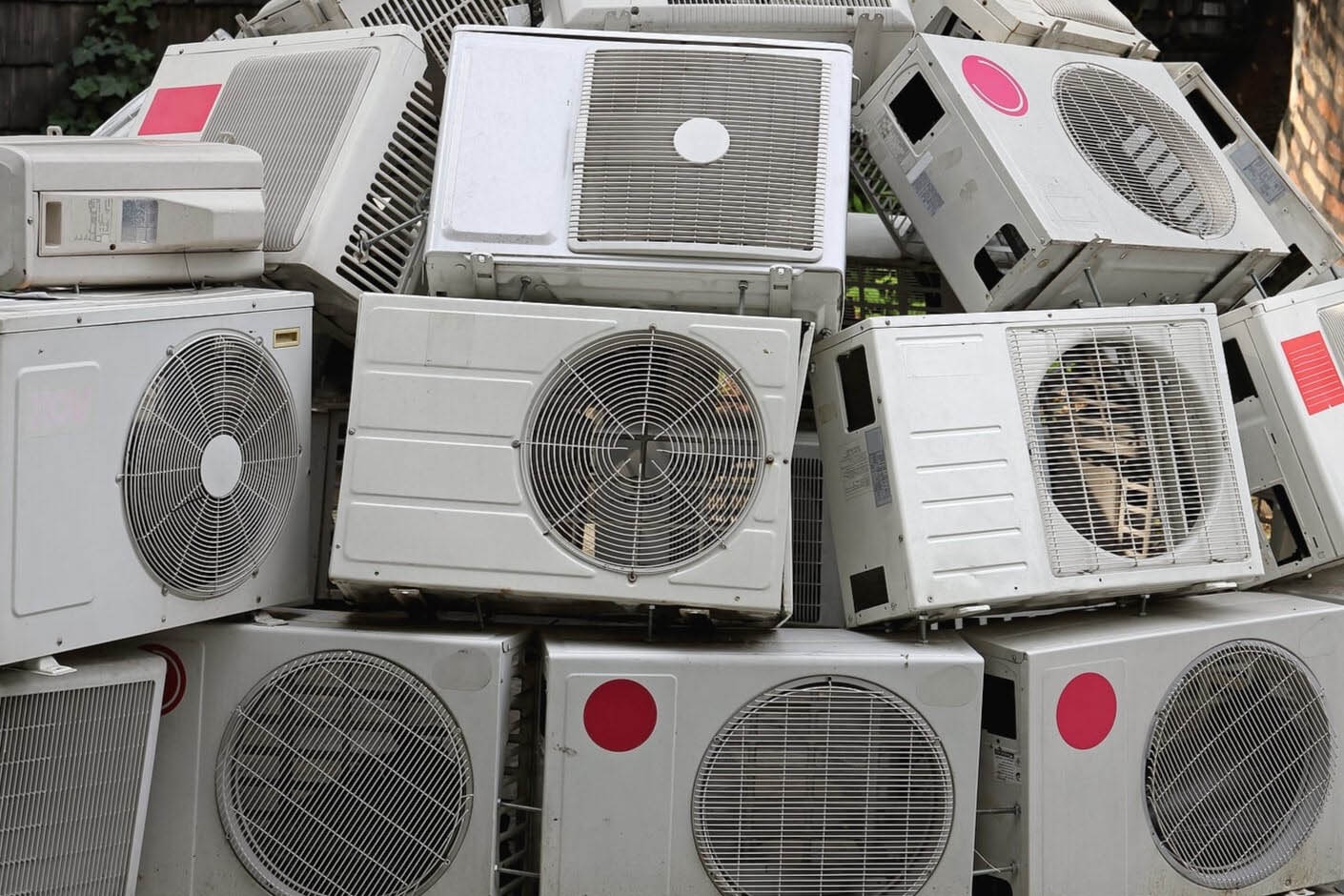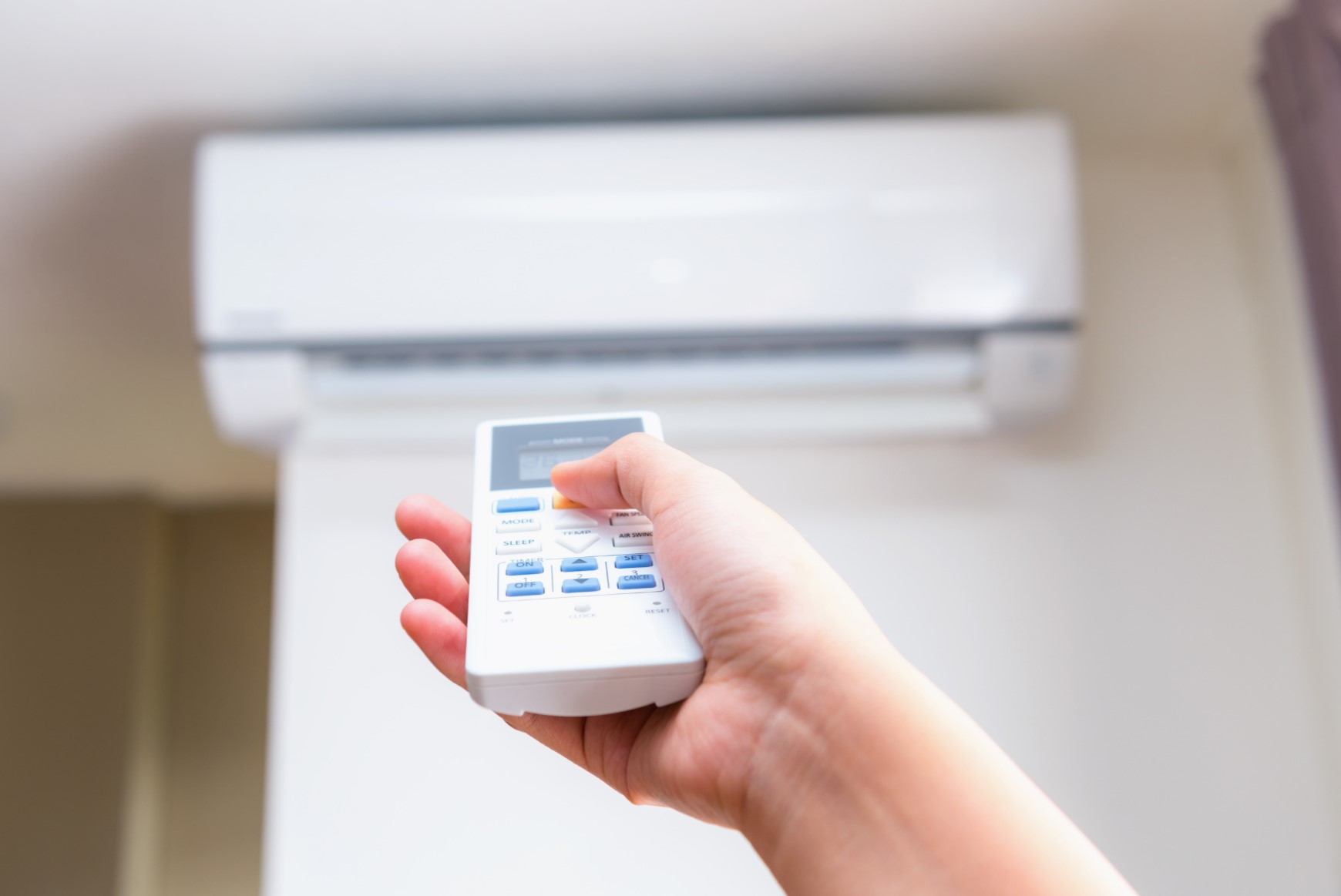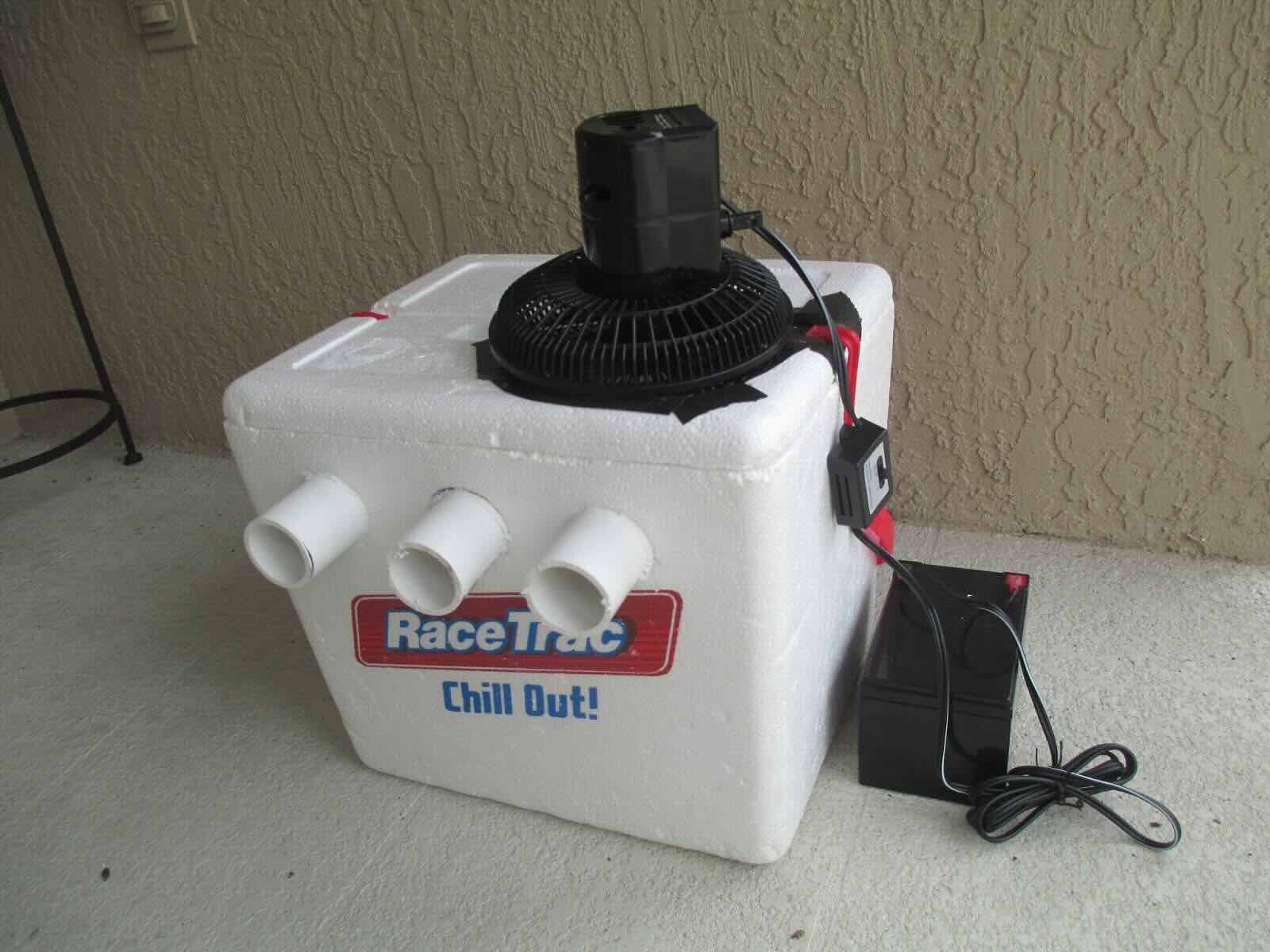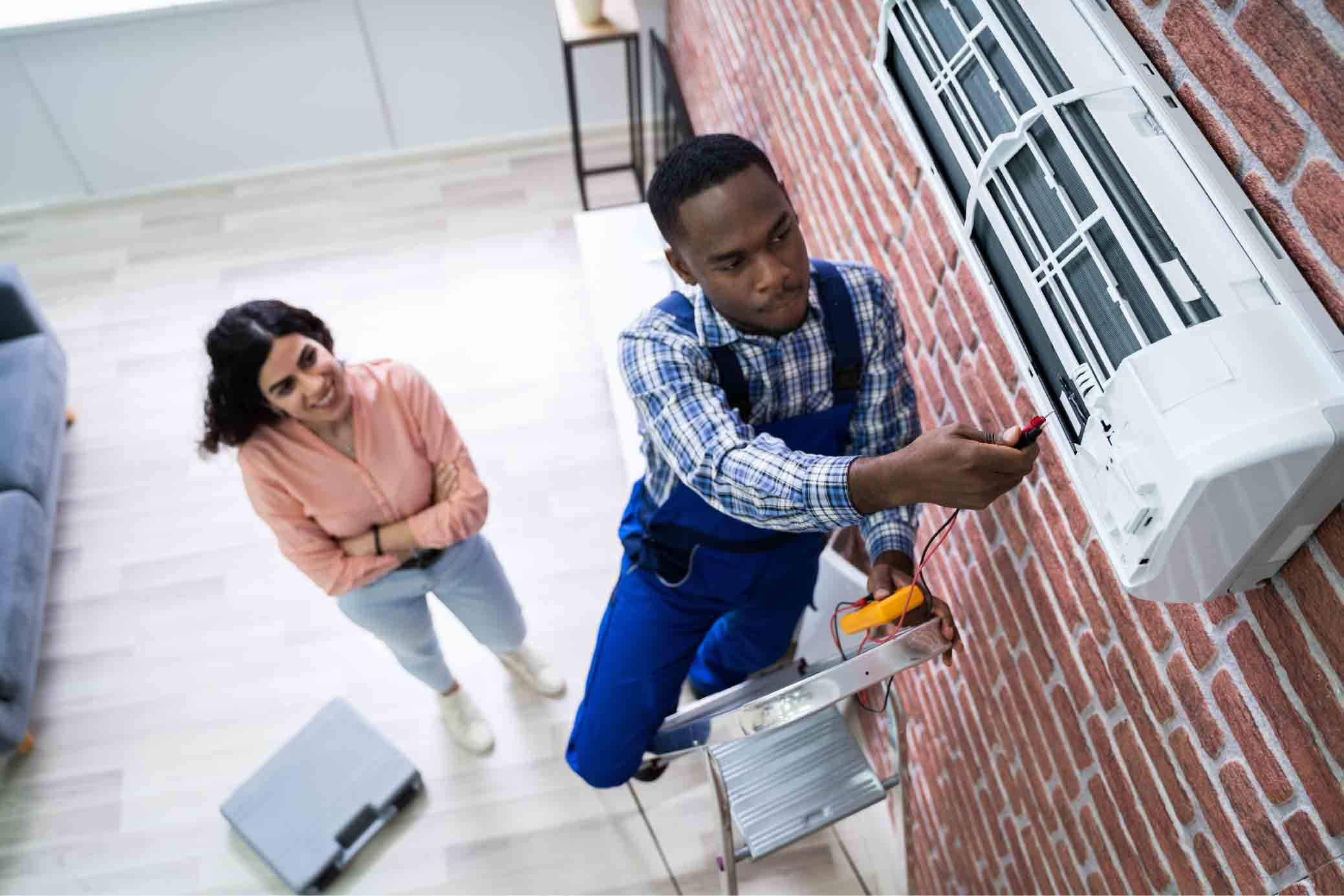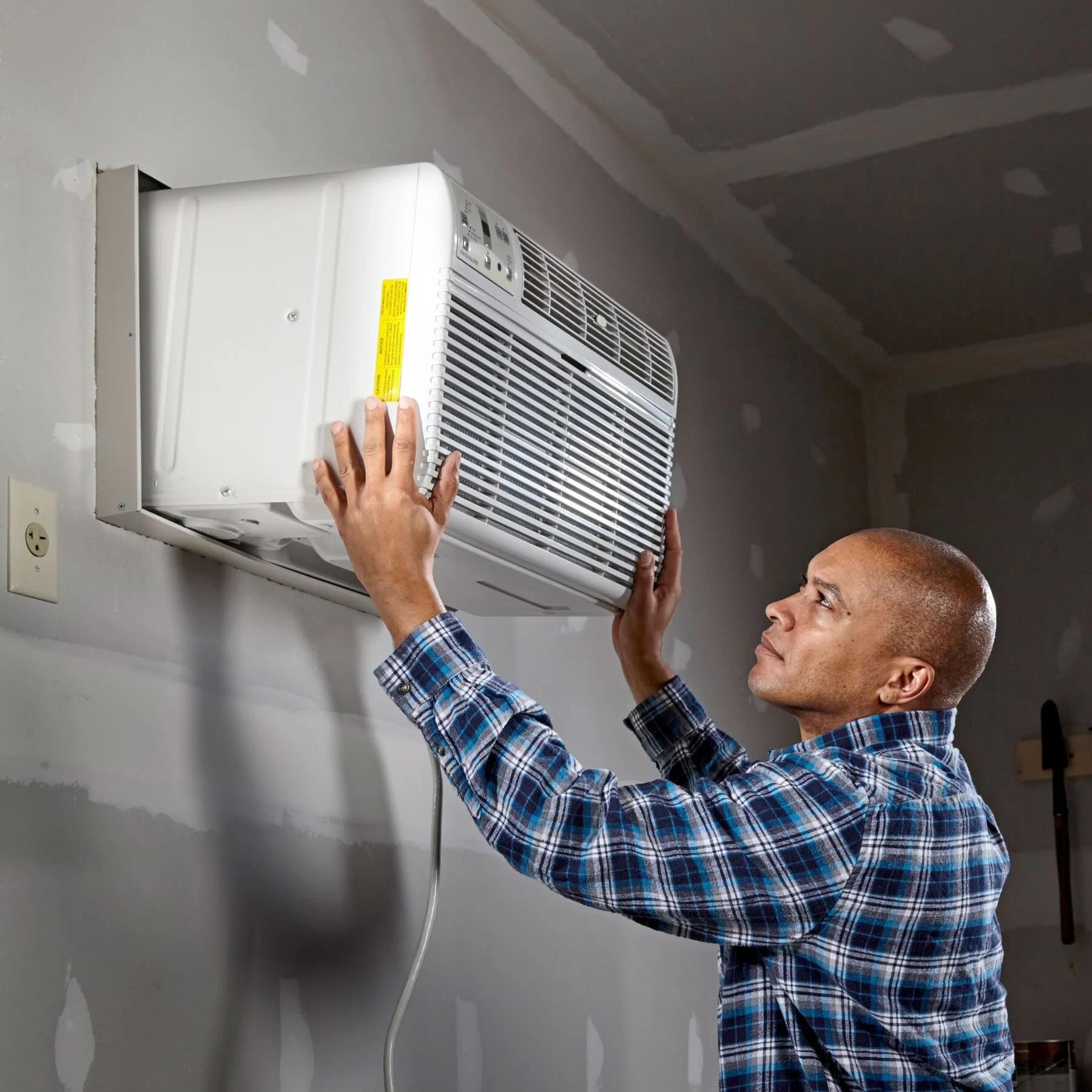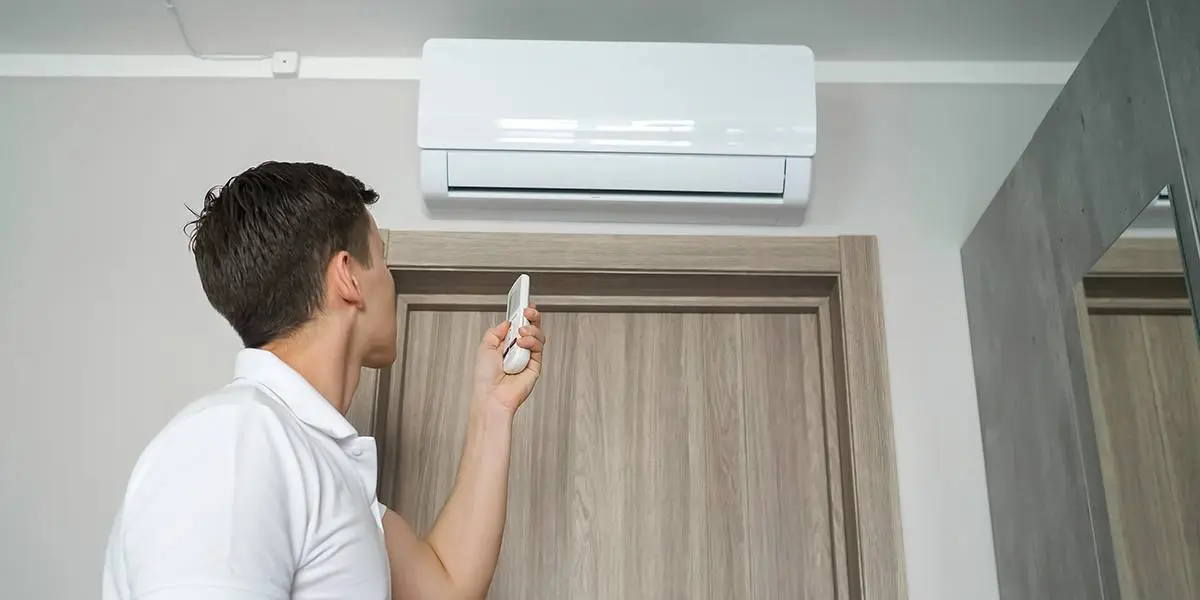Home>Home Maintenance>How To Dispose Of An Air Conditioner
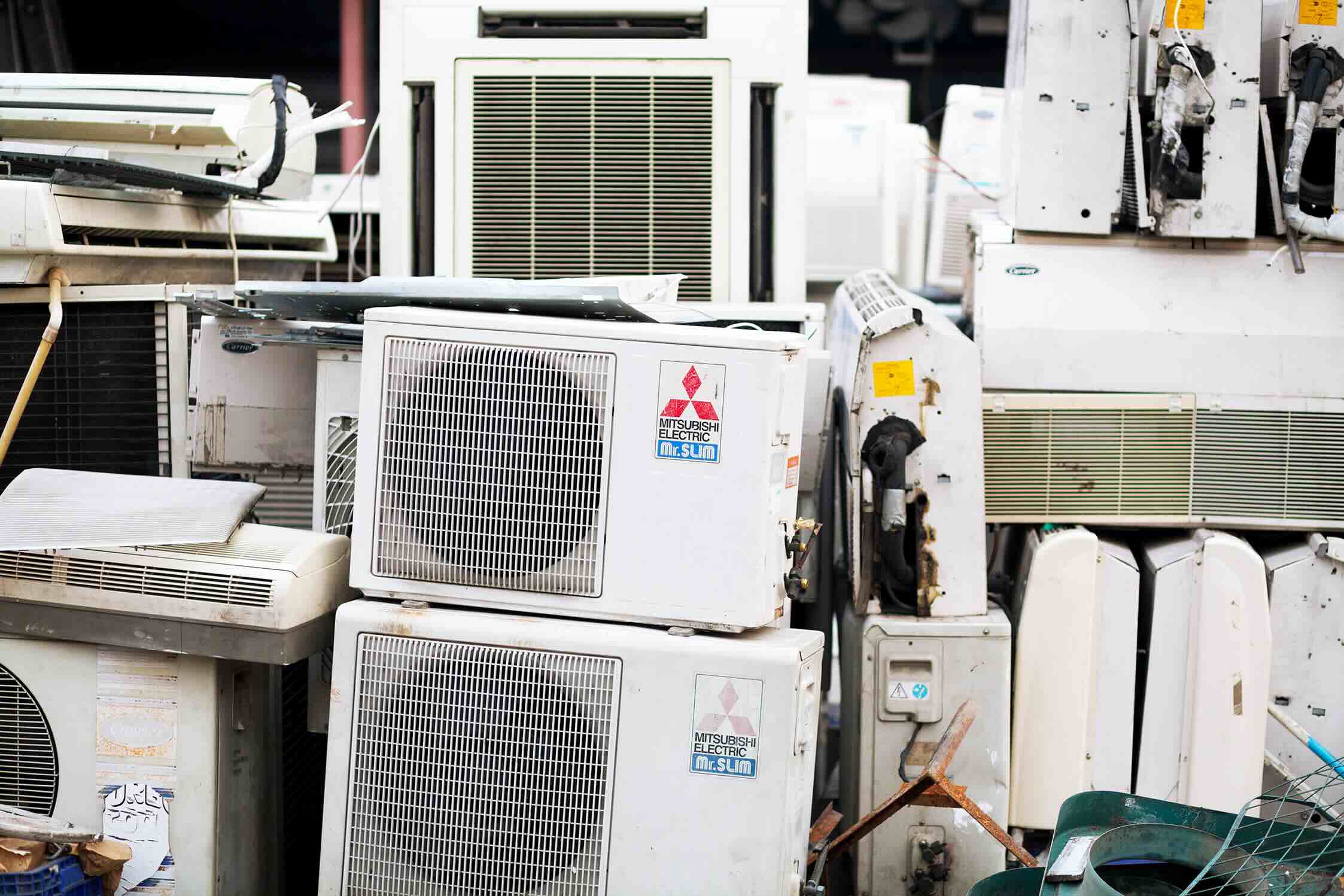

Home Maintenance
How To Dispose Of An Air Conditioner
Modified: March 7, 2024
Properly dispose of your old air conditioner with these home maintenance tips. Safely remove and dispose of the unit to ensure it won't harm the environment.
(Many of the links in this article redirect to a specific reviewed product. Your purchase of these products through affiliate links helps to generate commission for Storables.com, at no extra cost. Learn more)
Introduction
Welcome to our guide on how to properly dispose of an air conditioner. Whether you’ve upgraded to a newer model or your old air conditioner has reached the end of its lifespan, it’s important to handle its disposal responsibly. Improper disposal can harm the environment, damage our health, and even violate local regulations. By following the steps outlined in this article, you can ensure that your old air conditioner is disposed of in an eco-friendly and legally compliant manner.
Key Takeaways:
- Safely disconnect your air conditioner, remove refrigerant, and prepare it for recycling or proper disposal to protect the environment and comply with regulations.
- Consider recycling, professional disposal services, or alternative options like repurposing and donating to responsibly dispose of your air conditioner and reduce waste.
Step 1: Disconnecting the Air Conditioner
The first step in the disposal process is to disconnect the air conditioner from its power source. This will help prevent any electrical accidents during the removal and disposal. Here’s how you can safely disconnect your air conditioner:
- Turn off the air conditioner unit by pressing the power button or flipping the switch on the circuit breaker.
- Unplug the air conditioner from the electrical outlet. This will ensure that there is no power supply to the unit.
- Once the unit is disconnected, allow it to sit for a few minutes to ensure that any residual electricity is completely discharged.
- If your air conditioner is a window unit, remove it from the window by carefully lifting and sliding it out.
By following these steps, you can safely disconnect your air conditioner and prepare it for the next stages of the disposal process.
Step 2: Removing any Refrigerant
Before disposing of your air conditioner, it’s crucial to remove any refrigerant that may be present in the unit. Refrigerants, such as chlorofluorocarbons (CFCs) and hydrochlorofluorocarbons (HCFCs), are harmful chemicals that can deplete the ozone layer and contribute to climate change if released into the environment. Here’s how you can safely remove the refrigerant from your air conditioner:
- Consult a professional technician or HVAC specialist who is certified to handle refrigerants. They have the knowledge and equipment needed to safely extract and handle the refrigerant.
- If you choose to do it yourself, you’ll need to purchase a refrigerant recovery kit. Follow the manufacturer’s instructions carefully to ensure safe and proper removal of the refrigerant.
- Attach the recovery kit to the air conditioner’s refrigerant lines, following the instructions provided.
- Slowly and carefully extract the refrigerant from the unit, ensuring that it is properly contained and not released into the atmosphere. Make sure to collect the refrigerant in an appropriate container for disposal or recycling.
- Once the refrigerant has been safely extracted, securely cap the refrigerant lines to prevent any leakage.
Removing the refrigerant from your air conditioner is essential to protect the environment and comply with environmental regulations. It’s always best to seek professional assistance or follow the proper procedures to ensure the safe handling of refrigerants.
Step 3: Preparing the Air Conditioner for Disposal
Before disposing of your air conditioner, it’s important to take a few additional steps to prepare it properly. By doing so, you can ensure that the unit is ready for recycling or disposal in an environmentally-friendly manner. Here’s how you can prepare your air conditioner for disposal:
- Clean the unit: Use a damp cloth to wipe down the exterior of the air conditioner. Remove any dirt, dust, or debris that may have accumulated on the surface.
- Remove batteries: If your air conditioner has a remote control or any other battery-operated components, remove the batteries and dispose of them separately according to your local recycling guidelines.
- Check for reusable parts: Some components of the air conditioner, such as fans, filters, or copper coils, may be reusable. Consider salvaging any parts that are still in good condition for future use or donating them to organizations that can repurpose them.
- Secure any loose parts: Ensure that any loose or detachable parts of the air conditioner are properly secured. This will prevent them from becoming a hazard during transportation or disposal.
- Remove personal information: If your air conditioner has any programmable features or displays personal information, make sure to reset the settings and remove any stored data.
By following these steps, you can ensure that your air conditioner is clean, safe, and ready for the next stage of the disposal process.
Step 4: Recycling Options for Air Conditioner Components
When it comes to disposing of an air conditioner, recycling is often the most environmentally-friendly option. Many of the components in an air conditioner can be recycled and repurposed, reducing waste and conserving valuable resources. Here are some recycling options for air conditioner components:
- Metal Recycling: Air conditioners contain various metals such as copper, aluminum, and steel, which can be recycled. These metals are valuable and can be reused in the manufacturing of new products. Check with your local recycling center or scrap yard to find out how to properly dispose of the metal components.
- Refrigerant Recycling: The refrigerant removed from the air conditioner should be handled by professionals who have the necessary equipment to safely recover and recycle it. Improper disposal of refrigerants can have detrimental effects on the environment, so it’s important to follow proper procedures.
- Electronic Waste Recycling: Air conditioners also contain electronic components that can be recycled. Electronic waste recycling facilities specialize in safely dismantling and recycling electronic devices. Check with local recycling centers or electronic waste collection events in your area to see if they accept air conditioners.
- Manufacturer or Retailer Programs: Some air conditioner manufacturers or retailers have recycling programs in place. These programs allow you to return your old air conditioner to the manufacturer or retailer for proper disposal or recycling. Contact the manufacturer or retailer to inquire about any recycling initiatives they offer.
- Local Government Recycling Events: Many local governments organize recycling events where residents can drop off various items, including air conditioners, for recycling. Check your local government website or contact your waste management department to find out about upcoming recycling events in your area.
Recycling air conditioner components not only helps conserve resources but also reduces the impact on landfills and the environment. Make use of these recycling options to ensure that your air conditioner is disposed of in an environmentally responsible manner.
You can dispose of an air conditioner by contacting your local waste management facility to see if they accept old appliances. Some facilities may require you to schedule a special pick-up for large items like air conditioners.
Read more: How To Unfreeze Air Conditioner
Step 5: Proper Disposal Methods for Air Conditioners
While recycling is the preferred option for disposing of air conditioners, there may be instances where recycling facilities are not available or feasible. In such cases, it’s important to follow proper disposal methods to minimize the impact on the environment. Here are some proper disposal methods for air conditioners:
- Contact a Scrap Yard or Waste Facility: Scrap yards or waste disposal facilities may accept air conditioners for proper disposal. These facilities have the equipment and processes in place to handle the disposal of appliances safely. Contact your local waste management department or search online for nearby scrap yards that accept air conditioners.
- Check with Municipal Programs: Some local municipalities have programs in place for the proper disposal of appliances. They may offer pick-up services or have designated drop-off locations for appliances like air conditioners. Check your local government website or contact your waste management department for information on appliance disposal programs in your area.
- Donate or Sell the Air Conditioner: If your air conditioner is still functioning properly, consider donating or selling it. Many charitable organizations, thrift stores, or individuals may be interested in acquiring air conditioners at a reduced cost. Ensure that you provide accurate information about the condition of the unit and its working status when donating or selling it.
- Manufacturer Take-Back Programs: Some air conditioner manufacturers have take-back programs in place where they accept old units for proper disposal. Contact the manufacturer of your air conditioner to inquire about any such programs or initiatives they offer.
By following these proper disposal methods, you can ensure that your air conditioner is disposed of responsibly and in accordance with local regulations. Avoid disposing of air conditioners in regular household waste or leaving them on the curb, as this can lead to improper disposal and harm the environment.
Step 6: Hiring Professional Disposal Services
If you prefer a hassle-free approach or if recycling and other disposal options are not readily available to you, hiring professional disposal services can be a convenient solution. Professional disposal services specialize in the proper removal and disposal of various appliances, including air conditioners. Here are some benefits of hiring professional disposal services:
- Convenience: Professional disposal services will handle the entire process for you, from disconnecting the air conditioner to transporting and disposing of it properly. This saves you time and effort.
- Expertise: Professionals in the field have the knowledge and experience to safely handle and dispose of air conditioners. They are familiar with the regulations and guidelines surrounding proper disposal, ensuring legal compliance.
- Proper Equipment: Disposing of air conditioners may require specialized equipment, especially for larger units. Professional disposal services have the necessary equipment to safely remove and transport the air conditioner from your property.
- Eco-Friendly Disposal: Reputable disposal services prioritize eco-friendly disposal methods. They will ensure that the air conditioner is disposed of in an environmentally responsible manner, either through recycling or proper waste management facilities.
- Peace of Mind: By hiring professional disposal services, you can have peace of mind knowing that your air conditioner will be handled safely and responsibly, reducing any potential environmental impact.
When hiring professional disposal services, be sure to choose a licensed and insured company with a good reputation. Research local options, read reviews, and compare prices to find a reliable service provider that meets your specific needs.
Professional disposal services can provide a stress-free and reliable solution for disposing of your air conditioner, ensuring that it is removed and handled properly.
Step 7: Regulatory Considerations and Environmental Impact
When disposing of an air conditioner, it is important to consider the regulatory guidelines and environmental impact associated with its disposal. Understanding these factors will help ensure that you are compliant with the law and minimize any negative effects on the environment. Here are some key considerations:
- Local Regulations: Familiarize yourself with the regulations and guidelines set forth by your local government or waste management department regarding the proper disposal of appliances like air conditioners. These regulations may specify the methods of disposal, recycling requirements, or restrictions on certain components.
- Hazardous Materials: Air conditioners may contain hazardous materials such as refrigerants and other chemicals that can be harmful to human health and the environment. Improper disposal or release of these substances can contribute to air and water pollution. It is crucial to handle these materials responsibly, following proper procedures for extraction, containment, and disposal.
- Ozone Layer Depletion: Refrigerants like chlorofluorocarbons (CFCs) and hydrochlorofluorocarbons (HCFCs) can deplete the ozone layer if released into the atmosphere. Thoroughly extract and recover these refrigerants during the disposal process to minimize their environmental impact.
- Landfill Impact: Air conditioners and their components should not be disposed of in regular household waste. Many of the materials can be recycled or properly disposed of to reduce the burden on landfills. Recycling and responsible waste management options should be explored to minimize waste and maximize resource conservation.
- Carbon Footprint: The energy consumed during the manufacturing, operation, and disposal of air conditioners contributes to carbon emissions. By recycling or properly disposing of old air conditioners, you can reduce the overall carbon footprint associated with these appliances.
By being aware of the regulatory considerations and environmental impact, you can make informed decisions regarding the disposal of your air conditioner. Always prioritize proper procedures to protect the environment and comply with local regulations.
Step 8: Alternative Options for Air Conditioner Disposal
While recycling and professional disposal services are the recommended methods for disposing of air conditioners, there may be alternative options worth considering. These options focus on repurposing, reusing, or donating the air conditioner rather than simply disposing of it. Here are some alternative options to explore:
- Repurpose the Air Conditioner: If your air conditioner is still in working condition but no longer needed for cooling, consider repurposing it for another use. For example, you can turn it into a dehumidifier or utilize the fan function to improve air circulation in a specific area.
- Donate to Charitable Organizations: Many charitable organizations, community centers, or shelters may accept working air conditioners as donations. These organizations can provide relief and comfort to individuals or families who are in need and cannot afford to purchase their own cooling appliances.
- Trade-in Programs: Some retailers or manufacturers offer trade-in programs where you can exchange your old air conditioner for a discount on a new one. This option not only helps you dispose of your old unit responsibly but also provides an opportunity to upgrade to a more energy-efficient model.
- Reuse or Sell Components: If you are knowledgeable about air conditioner repair and maintenance, you can salvage working components such as fans, motors, or control panels from the unit. These components can be reused for repairs or sold to individuals who need replacement parts for their own air conditioners.
- Local Repair Shops or DIY Groups: Local repair shops or do-it-yourself (DIY) groups may be interested in acquiring old air conditioners for training purposes or as a source of spare parts. Contact these establishments to inquire if they have any use for your old unit.
By exploring these alternative options, you can give your old air conditioner a second life and contribute to reducing waste. Repurposing, donating, or reusing the unit can have a positive impact on both the environment and the community.
Read more: How To Store An Air Conditioner
Conclusion
Proper disposal of an air conditioner is essential to protect the environment, comply with regulations, and promote responsible waste management. By following the steps outlined in this guide, you can ensure that your air conditioner is disposed of in an eco-friendly and legally compliant manner.
Starting with disconnecting the air conditioner and removing any refrigerant, you can safely prepare the unit for disposal. Recycling options are widely available for air conditioner components, such as metals, refrigerants, and electronics. Recycling not only conserves valuable resources but also reduces the impact on landfills and the environment.
If recycling is not feasible, there are proper disposal methods that you can follow. Contacting scrap yards or waste disposal facilities, checking with local municipal programs, or donating/selling the air conditioner are viable options to explore.
Alternatively, consider hiring professional disposal services to ensure a convenient and expertly handled process. They have the experience, expertise, and equipment to dispose of your air conditioner safely and responsibly.
Remember to consider regulatory guidelines, the environmental impact, and the carbon footprint associated with air conditioner disposal. Following proper procedures and adhering to local regulations will help minimize any negative effects.
Lastly, explore alternative options for air conditioner disposal, such as repurposing, donating, or reusing the unit. These options can extend the life of the appliance, benefit others in need, or provide spare components for repairs.
By taking the time to properly dispose of your air conditioner, you can contribute to a cleaner environment and a more sustainable future. So, follow these steps and make a positive impact with your air conditioner disposal efforts.
Frequently Asked Questions about How To Dispose Of An Air Conditioner
Was this page helpful?
At Storables.com, we guarantee accurate and reliable information. Our content, validated by Expert Board Contributors, is crafted following stringent Editorial Policies. We're committed to providing you with well-researched, expert-backed insights for all your informational needs.

